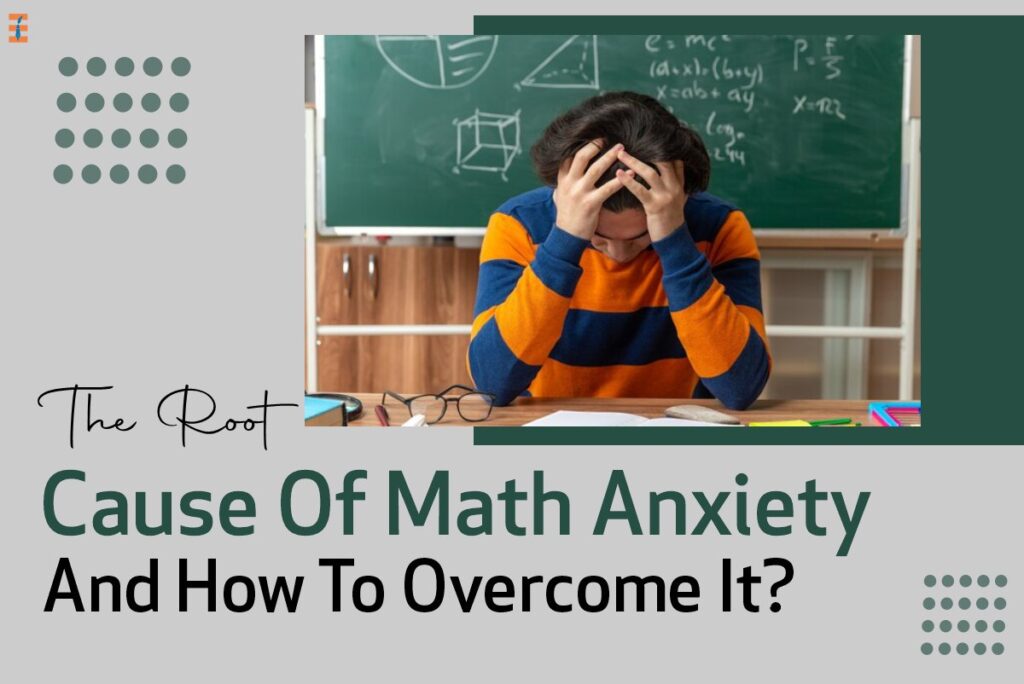Mathematics, often referred to as the universal language, is a fundamental subject that plays a crucial role in various aspects of our lives. It’s the tool behind scientific discoveries, technological advancements, and economic models. Yet, for many students, the very thought of math can evoke a sense of dread and discomfort. This phenomenon is known as math anxiety. In this article, we will delve into the concept of math anxiety, explore its causes, and consequences, and most importantly, discuss strategies to overcome it.
Understanding Math Anxiety
Math Anxiety is a psychological condition that describes the fear or apprehension one experiences when confronted with mathematical tasks or situations. It’s not just a dislike for math; it’s a genuine fear that can lead to a range of emotional, cognitive, and physiological reactions. Students with this anxiety often feel tense, nervous, and overwhelmed when dealing with mathematical problems, even if they can solve them.
The manifestations of math anxiety can vary from mild to severe and might include symptoms such as:
- Increased heart rate and sweating.
- Nervousness or panic attacks before math-related assessments.
- Avoidance of math-related activities or coursework.
- Negative self-talk and self-doubt related to mathematical abilities.
- Difficulty concentrating on math problems.
It can have a significant impact on an individual’s performance in math-related subjects and, more broadly, on their overall academic and professional pursuits.
The Causes of Math Anxiety
Math anxiety can stem from various sources, and it often results from a combination of factors. Some common causes include:
- Negative Past Experiences: A history of struggling with math or receiving negative feedback from teachers or peers can contribute to this problem.

- Fear of Failure: The fear of making mistakes or failing in math-related tasks can trigger anxiety, as individuals may perceive math as an all-or-nothing endeavor.
- Pressure to Excel: High expectations from parents, teachers, or society can create pressure to excel in mathematics, leading to performance anxiety.
- Lack of Confidence: A lack of confidence in one’s mathematical abilities can lead to self-doubt and anxiety.
- Comparison with Peers: Constantly comparing one’s math skills to those of peers can breed insecurity and anxiety.
- Teaching Methods: Inadequate or ineffective teaching methods can hinder understanding and contribute to anxiety.
- Cultural Factors: Societal attitudes and stereotypes about gender and math can influence how one perceives their mathematical abilities.
- Mathematical Complexity: The complexity and abstract nature of certain mathematical concepts can be intimidating.
It is important to note that math anxiety is not limited to those who struggle with math; even high-achieving students can experience it. The fear of not living up to their own or others’ expectations can be a significant source of anxiety.
Also Read: Effective Study Strategies: Maximizing Learning Efficiency
The Consequences of Math Anxiety
This anxiety can have far-reaching consequences that extend beyond the classroom. Some of the key impacts include:
- Academic Underperformance: It often leads to poor performance in math-related subjects. Students may avoid math courses altogether or achieve lower grades than their actual capabilities suggest.
- Reduced Career Options: Math is a critical skill in many professions. It can limit one’s career options and opportunities for professional advancement.
- Lower Confidence: It can erode a person’s self-confidence, making them less willing to tackle challenging mathematical problems or engage in quantitative reasoning.
- Psychological Distress: The persistent stress and fear associated with math anxiety can lead to psychological distress, including depression and low self-esteem.
- Avoidance Behavior: Individuals with this anxiety may actively avoid situations that require mathematical thinking, potentially hindering their personal and professional growth.
- Negative Perceptions of Math: It can perpetuate negative perceptions of math, making it even more challenging to overcome.
- Impact on Decision-Making: It can affect one’s ability to make informed decisions in various aspects of life that involve numerical reasoning.

Strategies to Overcome Math Anxiety
Overcoming this barrier is a gradual process that requires patience and commitment. Several strategies can help individuals conquer their fear of math and improve their mathematical skills:
- Identify the Source: Understanding the root causes of this anxiety is the first step in addressing it. This might involve examining past experiences, reflecting on personal beliefs about math, and seeking support from educators or mental health professionals.
- Change Negative Self-Talk: Replace self-critical thoughts with positive affirmations. Challenge self-doubt and replace it with constructive self-talk that acknowledges progress and potential.
- Practice Regularly: Regular practice is key to building math confidence. Gradually work through mathematical problems, starting with manageable tasks and progressing to more challenging ones.
- Seek Support: Don’t be afraid to ask for help when needed. Seek guidance from teachers, tutors, or peers. There’s no shame in seeking support, and it can significantly boost your understanding of math concepts.
- Set Realistic Goals: Establish achievable goals and celebrate small successes along the way. A series of small victories can help build confidence and reduce anxiety.

- Use Resources: Take advantage of math resources available online or at your school or local library. There are numerous websites, textbooks, and apps designed to make math more accessible and engaging.
- Visualize Success: Practice visualization techniques to reduce anxiety. Imagine yourself successfully solving math problems and feeling confident in your abilities.
- Stay Relaxed: Use relaxation techniques like deep breathing and mindfulness to manage anxiety before and during math-related tasks.
- Understand Mistakes: Embrace mistakes as opportunities for growth. Analyze your errors to understand the areas that need improvement and learn from them.
- Challenge Stereotypes: Challenge stereotypes and societal beliefs about math and your capabilities. Remember that your potential in math is not limited by your gender, race, or background.
Conclusion
Math anxiety is a common challenge that many individuals face, but it is not insurmountable. Understanding the sources of this anxiety, recognizing its consequences, and implementing strategies to overcome it can lead to a brighter mathematical future. Math is a powerful tool that opens doors to numerous academic and career opportunities, and conquering math anxiety can empower individuals to reach their full potential. By changing their relationship with math, students can move from fear to mastery, ultimately improving their academic performance and boosting their self-confidence.

